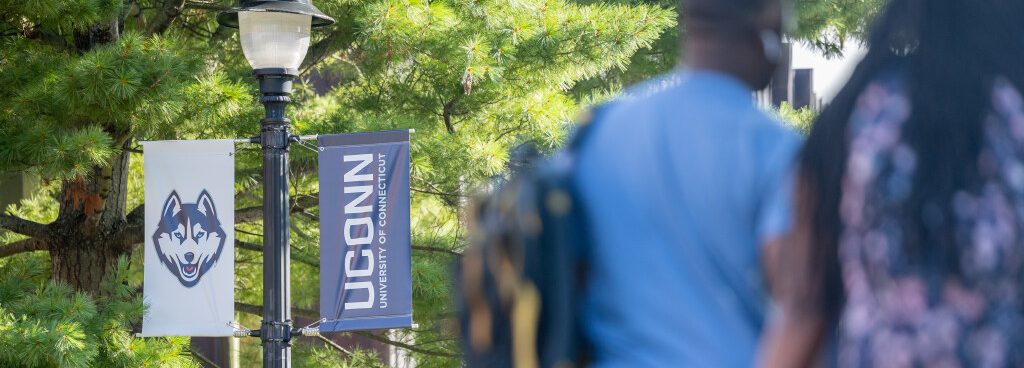
Other Experiential Learning Opportunities
Read more about the various experiential learning opportunities below! These include activities and programs that are environmentally focused but not managed by the Office of Sustainability.
Student Environmental Organizations
There are many excellent student organizations on campus where students determined to make positive changes for the environment at UConn can meet like-minded individuals. To learn more about these organizations and join, click here. Below is a feature of a small subset of the environmental clubs on campus.
EcoHusky
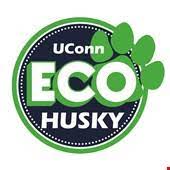
EcoHusky is a student organization open to all students interested in learning about their relationship with the environment! Our members come from all majors and interests, we work together towards environmental education (of ourselves), outreach events, and community action all while having fun and some thought-provoking discussions along the way. The environment provides us with basic human needs like water and food, yet not all communities have access to its sustaining provisions: therefore we are working to promote environmental awareness with a critical, equitable lens, understanding why environmental issues disproportionately burden communities, and acting with these understandings in our everyday lives. We carry out the mission of environmental understanding through weekly meetings (IP - indoors and out, some Hybrid), as well as hosting, participating, and collaborating with organizations on and off campus to create events. Join here!
Ecoposium
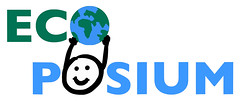
Ecoposium, UConn is an organization that serves to plan and promote UConn's first student-led, annual environmental symposium. We strive to spread awareness and educate the UConn community about relevant environmental issues through a two day event.
The Symposium:
Ecoposium will host guest speakers from a variety of environmental backgrounds in a formal conference setting to facilitate meaningful conversations. The event takes place on the first weekend of April, across two days, with each session of the symposium dedicated to a specific topic. Previous session topics covered the following, but are not limited to: sustainable urban development, climate refugees, and biodiversity and wildlife conservation.
The Organization:
Our organization is comprised of session directors and other leadership roles within our team to help plan out and organize the symposium. Topics will be voted on for each session at the start of every fall semester. All positions for this organization are application-based, and we highly encourage candidates of all backgrounds, majors, and experiences to join us!
Climate & Mind Network
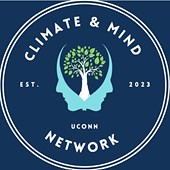
The UConn Climate & Mind Network (CMN) is an organization dedicated to helping students through the climate crisis. As an organization, we seek to combat the growing eco-anxiety and stress surrounding global climate change. We want to provide an outlet for students to talk openly about these issues, and provide learning and de-stressing opportunities for students that are affected by them. Join here!
UConn Horticulture Club

The Horticulture Club is an academic and social club that meets on a weekly basis to get involved in horticultural activities. Membership is free of dues and open to all who have an interest in horticulture, gardening, botany, and related subjects. In the spring we do a large display in the Hartford Flower Show. The Horticulture Club has a Garden Mum, Poinsettia and Geraniums sale throughout the year. We also host guest speakers, take field trips, propagate plants, and do other plant-related activities. If you like plants in any way, we are the club for you. Join here!
Green Chemistry Initiative

The goal of Green Chemistry Initiative (GCI) UConn is to raise awareness about sustainable practices in chemistry & chemical engineering through seminars, workshops, and networking, educating scientists and engineers on green chemistry concepts relevant to research and the community.
Mission
It is the mission of the GCI to raise awareness about green chemistry in order to facilitate sustainable practices within the chemistry and chemical engineering community at the University of Connecticut. Through seminars, workshops, and networking, the Green Chemistry Initiative strives to educate scientists and engineers about important green chemistry concepts that are relevant to chemical research and the community at large. The membership is open to any Graduate or Undergraduate student at the University of Connecticut who is interested in Green Chemistry and sustainable engineering is eligible to join the GCI. Join here
Soil Water Conservation Society (SWCS)
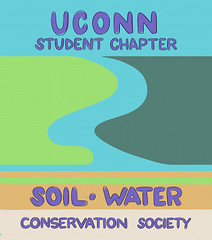
This chapter shall take an active role in soil and water resource conservation issues on the UConn Storrs campus. This club will endeavor to promote the furtherance of knowledge and skill building in its members in the disciplines related to soil and water resource science. This club will, additionally, operate as an independent, but cooperative extension of the national SWCS organization, collaborating on goals, initiatives, and projects where applicable with members from the Southern New England Chapter and national organization. This club will seek to introduce members to, and build relationships with, those professionals in the environmental field of study. Join here!
The Clean Energy and Sustainability Innovation Program is a joint opportunity from UConn and Eversource Energy that encourages students to propose their own new ideas for a clean energy transition through innovation. Selected student teams receive the chance to develop their ideas over the summer with funding and mentors from UConn and Eversource. Additionally, student teams must be two or three students from at least two different disciplines. Applications for the program are currently closed. Check back in the spring for more information!
Spring Valley Student Farm
Spring Valley Student Farm (SVSF) began in 2010 as a project sponsored by UConn ResLife, and has since expanded into more than ten student farmers living at the farm off campus. SVSF offers Farm Fridays from 4-6pm, during which any student can visit the farm to engage with the farm community and participate in farming activities. To learn more about Spring Valley Student Farm, visit their webpage here.
Environmental Corps
The Environmental Corps (E-Corps) is "an approach to Life Transformative Education," combining students' learning about environmental topics in the classroom with practical, hands-on experience with various projects in different communities. Each E-Corps course spans two semesters; the first is spent in the classroom, and the second is spent completing the community-based projects. Currently, there are three focus areas: brownfields development, climate resilience, and stormwater management. Projects include Climate Vulnerability Assessments, Climate Communication Strategies, Stormwater Retrofit Plans, and more. Visit the E-Corps website to see how you can get involved! Read more about the three different focus areas below.
Brownfields Corps
Brownfields Corps focuses on challenges and opportunities in remediating and redeveloping contaminated sites; instruction led by the Dept. of Civil and Environmental Engineering. According to the Connecticut law, a brownfield is "any abandoned or underutilized site where redevelopment, reuse, or expansion has not occurred due to the presence or potential presence of pollution in the buildings, soil, or groundwater that requires investigation or remediation before or in conjunction with the redevelopment, reuse, or expansion of the property." Projects include data gap analysis, redevelopment options, brownfield inventory, and more.
Climate Corps
Climate Corps focuses on local impacts of climate change and the opportunity to implement resilience strategies; instruction led by the Dept. of Extension. The course focuses on service learning and work force development in the realm of climate change at the local level. Students work with municipalities or other organizations to work on a climate adaptation project.
Stormwater Corps
Stormwater Corps focuses on flooding and pollution caused by stormwater runoff and how to implement low impact development (LID) options to reduce such impacts; instruction is led by the Dept. of Extension. Learn more about LID here. Students work with communities to develop green stormwater retrofit analyses, demonstrating how best to implement such practices into the community. Stormwater Corps also includes a Summer Corps program which acts as a summer job for undergraduates to perform the same analyses.
NatureRx
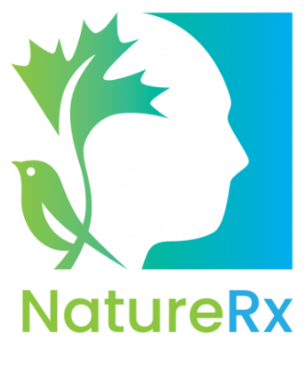
NatureRx launched at UConn in the Fall of 2021. It is a grass-roots initiative designed to promote spending time in nature and raise awareness for "the scientific evidence for nature's many benefits." The initiative is part of the network of college campuses across the country engaging in similar campaigns, known as Campus Nature Rx. NatureRx hosts the "I Thrive Naturally" event series, aimed at informing students about various opportunities for spending time outdoors. Check out NatureRx here!
Natural Resources Conservation Academy (NRCA)

The Natural Resources Conservation Academy (NRCA) at UConn provides "engaging and educational hands-on outdoor experiences" as well as "support and resources" for participants as they "contribute to environment efforts in their community." Read more about the three programs NRCA offers below.
Conservation Ambassador Program (CAP); grades 9-11
The CAP program encourages high school students to enjoy the outdoors and make a difference in their community. The program spans 9 months and includes a summer field experience at UConn as well as a community environmental action project. Topics taught during the CAP program include remote sensing, GPS, and orienteering; freshwater and green infrastructure, forests and soil, fish and wildlife, biodiversity in the night, and more. Apply here!
Difference Maker Mentors (DMMs); UConn Students
UConn undergrads can begin the program by enrolling in NRE 1250 sec 1, Community Engagement for Environmental Action, in the spring. If selected, DMMs co-facilitate the summer CAP field experience (see above). Difference maker mentors help a group of the CAP students throughout their community environmental action project from July to April, assisting them in their showcase event in the spring. Learn more about the DMM program here!
Eco-Digital Storytellers (EDS); school teams & UConn Students
The EDS program combines high school student-teacher teams with UConn students to pursue environmental storytelling initiatives through maps and digital media. The program spans 6 months and culminates in a project showcase in May. Read more about the program here!